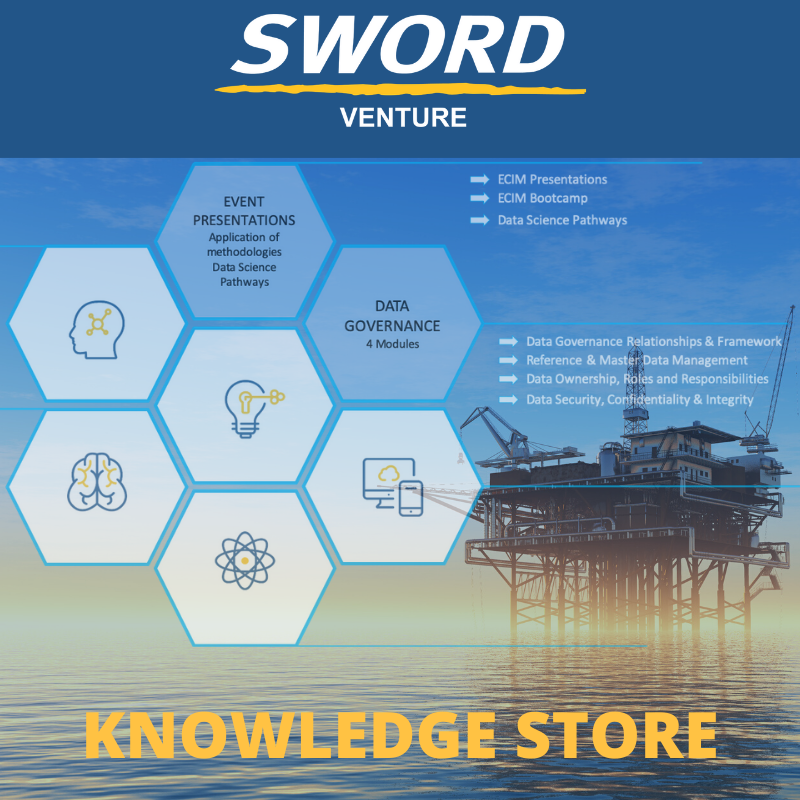Four Modules to Data Governance Enlightenment…

What is Data Governance?
We’ve seen a recent resurgence in interest around the subject of ‘Data Governance’. We see this as a really positive sign that the industry is alive to the possibilities that digital enablement can deliver, and recognises the need to apply control and order to the data asset to kick-start this transformation. That’s what a data governance framework can give you.
But firstly, what is Data Governance? The DAMA Dictionary of Data Management offers the following concise definition:
“The exercise of authority, control and shared decision making (planning, monitoring and enforcement) over the management of data assets.”
The key element of this definition is that data is treated and managed as an asset. A data governance model provides the necessary controls to do this.
Why now?
“As one of your company’s most important assets, data should be a first-class citizen.” Forbes article, 2019.
The concept of data governance is not new but has been neglected during the recent downturn. This renewed focus has been driven by the growing recognition that data quality, completeness and accessibility are critical to the success of oil & gas industry digitalisation and improved business efficiency. This is especially so when it comes to the application of data science, artificial intelligence, machine learning, deep learning and process automation. A strong data governance framework is needed to deliver high quality data in to the digital ‘pipeline’. Without this, many potentially valuable initiatives will fail to deliver any tangible value.
Another key driver is regulatory compliance: there is an increasing drive from regulators for operators to provide timely, high quality data to support safety, efficiency and maximizing value of oil and gas assets. Failure to comply with data submission regulations can lead to fines and other sanctions. There is also the ever-present risk to ‘business as usual’ caused by poor quality, incomplete and inaccessible data resulting in decisions that are detrimental to the business and increased HSSE risk.
A fit for purpose data governance framework addresses these challenges. The question is; where do you start?
What does Sword Venture have to offer?
Sword Venture has nearly 30 years of experience designing and implementing data and information systems in the Oil & Gas industry. For us, strong data governance has always been a foundation for the work we do. This resulted in the development of a set of training and best-practice materials that Sword Venture has used internally and with our clients. The model was developed in line with industry best practices, in particular the DAMA framework for data management.
We have decided to share these materials to help you accelerate your governance framework planning and address all the challenges you face around digitalisation, operational efficiency, risk management and regulatory compliance.
We’ll be releasing this content over the course of the next few weeks:
Module 1: We’ll introduce the concept of data governance and how it relates to data management. At the core of this is the concept of managing data as an asset. We’ll then look at how the key framework components of strategy, policies, standards and procedures support the development of a governance framework.
Module 2: We’ll introduce the concepts of ‘reference’ and ‘master’ data management and look at how these fit in to a broader data management architecture. We’ll also discuss the pro’s and con’s of the different models including working projects, regional projects, master databases, and corporate master database architectures.
Module 3: We’ll move on to the ‘people’ aspects of our governance model, looking at the key concepts of data ownership and associated roles and responsibilities. We will consider the different types of organisational models that you might use to support your data management framework. Next, we look at data quality and issue management. We’ll define what we mean by ‘data quality’ and how we might deal with common data quality issues.
Module 4: We consider the key topic of data security, including confidentiality, integrity and availability/accessibility considerations. We’ll look at the questions you need to ask yourself to assess how secure your data really is. Finally, we take a step back and consider the practical aspects of the application of a data governance framework and how we develop a functional operational model around this. We’ll look at the tools you can use to identify where you need to focus your efforts and how to develop a practical governance roadmap. We finish off with a summary of the lessons learnt by Venture from many years of developing and implementing governance frameworks.
At the end of the Modules, you’ll have a much clearer idea of what data governance is and how it supports data management and digitalisation. You’ll understand what the critical components of the framework are and how to develop a practical roadmap to make it happen.
Understanding the bigger picture
We’re also offering a free “short, sharp” IM Maturity Assessment to help you understand your current strengths and weaknesses around your IM systems and processes. This will help you prioritise the areas that you need to focus on developing your IM framework and supporting governance model. Get in touch to find out more.
Gareth Smith, Head of Consulting